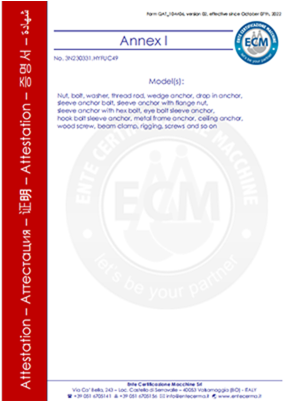nov. . 17, 2024 04:11 Back to list
anchor fastener fitting
Understanding Anchor Fastener Fittings A Comprehensive Guide
Anchor fastener fittings are integral components in various construction, engineering, and manufacturing applications. They are designed to provide strong, secure connections between structural elements, ensuring safety and stability in a wide range of environments. This article delves into the types, applications, and advantages of anchor fasteners, providing insight into their critical role in modern construction and industry.
What are Anchor Fastener Fittings?
Anchor fasteners are devices used to attach a structure to a material, usually concrete or masonry. They come in various forms, including bolts, screws, and specialized anchors, which are designed to be installed in pre-drilled holes. During installation, they expand or lock into place, providing a robust hold that can bear significant loads.
Types of Anchor Fasteners
1. Mechanical Anchors These fasteners depend on physical expansion or interlocking with the base material to secure themselves. Examples include wedge anchors, sleeve anchors, and toggle bolts. Each type has specific applications based on load requirements and material compatibility.
2. Chemical Anchors These fasteners use a bonding agent (often epoxy or resin) to secure the anchor in place. The adhesive is injected into the hole before inserting the anchor, allowing for excellent load-bearing capabilities and resistance to environmental degradation.
3. Undercut Anchors These are used in applications where maximum strength is needed, such as in high-load settings. They create an undercut in the material, fitting securely in place, and are commonly used in the installation of heavy machinery.
4. Hollow Wall Anchors Designed specifically for use in hollow materials, such as drywall or plasterboard, these anchors distribute the load across a wider area, reducing the risk of damage.
Applications of Anchor Fastener Fittings
Anchor fasteners are utilized across numerous sectors including
- Construction In building frameworks, these fittings ensure that walls, ceilings, and flooring are securely attached. They are essential for holding structural components, such as beams and columns, in place.
anchor fastener fitting

- Manufacturing Machinery often requires anchoring to prevent movement during operation
. Fasteners provide the necessary stability to keep equipment secure, thereby enhancing safety during processes.- Infrastructure For public works such as bridges and roads, anchor fastener fittings are critical for maintaining the integrity of structures, particularly in areas susceptible to harsh weather conditions and seismic activity.
- Residential Projects From securing cabinets and shelving to anchoring large appliances, anchor fasteners play a significant role in everyday home renovations and setups.
Advantages of Using Anchor Fastener Fittings
1. Strength and Stability The primary benefit of anchor fasteners is their ability to provide strong connections that can withstand heavy loads and dynamic forces.
2. Versatility With a variety of types available, they can be used in different materials and applications, making them suitable for almost any project.
3. Ease of Installation Many anchor fasteners are designed for straightforward installation, which can save time and reduce labor costs on projects.
4. Resistance to Environmental Factors Certain anchor types are engineered to resist corrosion, moisture, and other environmental influences, extending their lifespan and reliability.
5. Cost-Effectiveness By preventing structural failures, anchor fasteners can save significant costs associated with repairs and replacements.
Conclusion
Anchor fastener fittings are vital components that contribute tremendously to the safety and stability of structures across various industries. Understanding the types, applications, and benefits of these fittings enables engineers and construction professionals to make informed decisions when it comes to material selection and project design. As technology advances, the development of more efficient and reliable anchor fasteners continues, further elevating their importance in construction and engineering industries. Whether it’s a residential project or a large-scale infrastructure endeavor, choosing the right anchor fastener can make all the difference.


